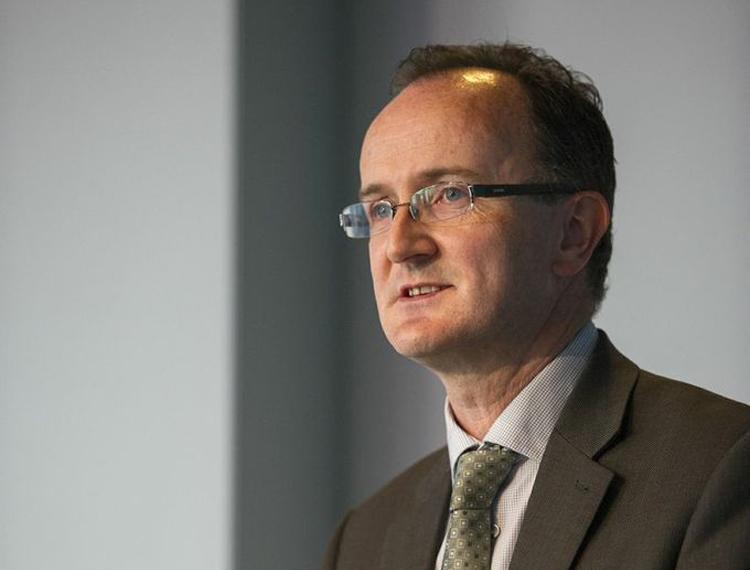Are apprenticeships really for all?

I was delighted to see the Government’s recent advertising campaign promoting the benefits of apprenticeships, giving much needed air time to the many and varied opportunities that exist. It’s great that these schemes are getting exposure, but at the same time I was disheartened to see the adverts perpetuating the outdated stereotype that apprenticeships are just for young people. There needs to be greater education around the wider scope of programmes available and the fact that you don’t have to be a school leaver to take full advantage of them. I feel that the Government has missed a huge opportunity to widen the appeal and target a much broader demographic.
One of the biggest challenges currently facing the apprenticeship system is how to widen its access and provide pathways to skills and employment for all parts of society. Despite the rise in numbers of apprenticeship starts over the past decade, there are still certain groups seeing high levels of unemployment whose potential could be unlocked through these schemes.
For example, Black and Minority Ethnic (BAME) young people are twice as likely to be unemployed as their white counterparts, and this figure rises when you look at young people with a disability. Almost 50% of young people in the UK with a disability are unemployed, and as a nation we should see this as a cause for concern. By not featuring any disabled apprentices in its adverts, the government has missed a huge opportunity to address this head on. Apprenticeships have the potential to be a fantastic vehicle to provide the extra support needed by those faced with a disability.
At Barclays, we have already adapted our programme to provide far greater access to jobs across our business for people with physical or mental health disabilities.
Before we started our programme, the percentage of new recruits within Barclays with a declared disability was only 3%. We addressed this using the more supportive approach an apprenticeship enables. For example, every candidate with a disability is matched with an existing Barclays colleague who has the same disability so they can share how the company supports them and what it’s like to work in Barclays.We now have over 10% of our recruits with a declared disability and this is rising as we get better at building relationships with specialist recruitment organisations and promoting ourselves to this group – making people aware of the support that Barclays provides.
We have learned a lot of lessons along the way about how to attract this particular talent pool. In particular, we now understand how traditional recruitment methods often do not make sufficient allowances for both mental and physical disabilities. Whether that is our recruitment website design or the interview and assessment process itself, it became clear that our usual approach to recruitment needed to be adapted.
The second group that are overlooked when it comes to apprenticeships, and fail to make an appearance in the adverts, are older people. In the UK today there are in excess of one million people over the age of 50 who are unemployed but who wish to be in employment. There are many reasons why people find themselves in this group, whether through forced redundancy or having to leave work to care for others.
With the removal of the 16-24 age restrictions on funding following the recent apprenticeship reforms, it is perfectly feasible to hire apprentices of any age on to new national Apprenticeship Standards. Given the number of school leavers will be well below the number of new jobs predicted to be created in the UK, businesses will need to start to look more widely to find apprentices. At Barclays we have started to focus on this particular talent pool and have hired over 60 people onto our “Bolder” (Barclays Older) apprenticeship scheme and into key parts of our business. The skills and life experiences they have brought to the table have been incredible, and they are already adding huge value to our business.
As companies begin to think about how they invest the Apprenticeship Levy from April next year, I hope that they give consideration to attracting as wide and diverse a pool of talent as possible. The apprenticeship model is a fantastic way of supporting anyone from any background to develop new skills. Apprenticeships allow companies to develop the key skills they need as well as create loyal and highly productive workers.
I truly hope that one day we will be in a place where people of all ages, backgrounds and abilities are supported and encouraged to succeed in their chosen career and learn the skills they need to enable this. To this end, it would be fantastic if apprenticeship adverts featuring a 60 year old or a blind apprentice become more commonplace, to ensure that the apprenticeship system is fundamentally and comprehensively inclusive to all.
Mike Thompson, Head of Apprenticeships at Barclays and member of the Prime Ministers’ new Apprenticeship Delivery Board












Responses